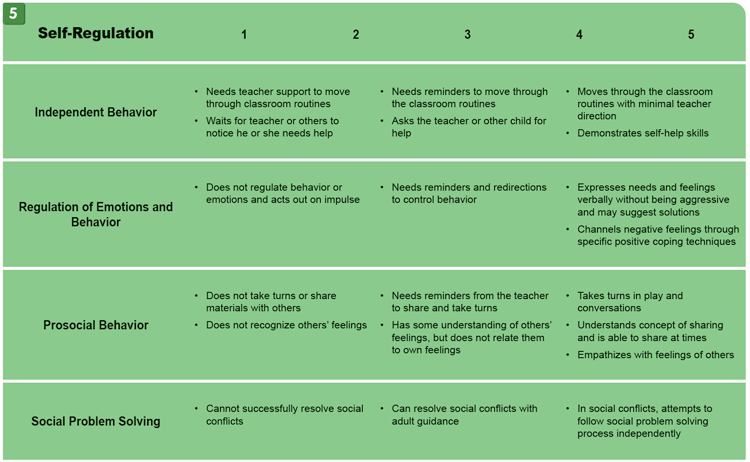Self-regulation is the capability to engage in purposeful self-directed actions to govern behavior.
This entails the ability to control behavior and emotions and to comply with requests as well as control the cognitive system which enables children to direct and monitor thinking and problem solving, focus attention, and engage in independent learning activities.
Research shows that the ability to self-regulate is strongly related to school achievement and positive social functioning. Importantly, children without self-regulation often display aggression, impulsivity, non-compliance and poor academic achievement.
The ELS assesses this item across 4 strands. The next four pages will provide more detailed information about these strands.

